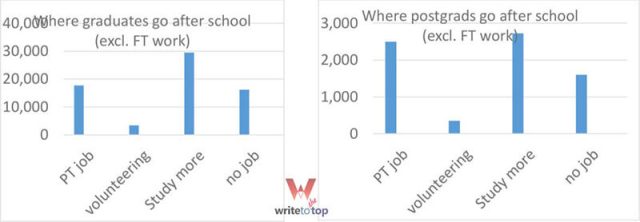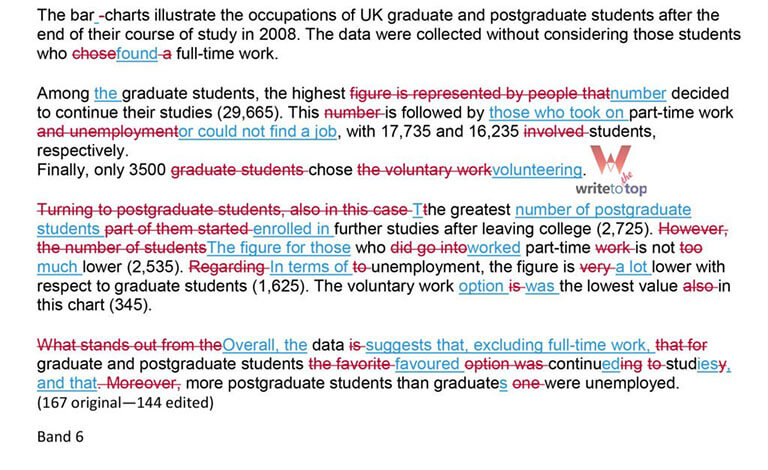
The bar charts illustrate the four paths, not including full-time employment, taken by UK students who completed their bachelor’s and master’s degrees following graduation in 2008.
Overall, although graduates far outnumbered post-graduates, both groups demonstrated similar tendencies, with continued studies being the preferred option and volunteer work the least favoured one.
Members of the graduate class not pursuing full-time employment numbered roughly 10 times higher than the postgraduates in the same position. Accordingly, postgrads who chose to continue their education totalled just below 10% of those in the graduate group at 2725 and 29,665, respectively.
A similar relative position is evident among those choosing to volunteer and those who could not find a job. Whereas 3500 graduates found volunteer work, only 345 postgrads did the same; likewise, 16,235 graduates and 1625 postgrads could not find work. The most striking difference between these groups is the in-class relationship between part-time workers and those choosing further studies: among the graduates, the latter category almost doubled the former, while among the postgrads this number was almost equal, with 2725 choosing continuing education to 2535 part-timers.
(182)
-

* Save now: EARLY BIRD SPECIAL until end of May IELTS WRITING: SCORE HIGHER IN JUST 1 DAY Join Adam live on Zoom for a 4-hour intensive online workshop to: Review the 4 scoring criteria Carefully analyze task samples Brainstorm and plan your answers Write...
- Select options This product has multiple variants. The options may be chosen on the product page
-

Why are you losing points in the IELTS writing section? Most test takers don’t know where they are losing points and how to fix this problem. So they repeat their mistakes and get the same score again and again. But,...

